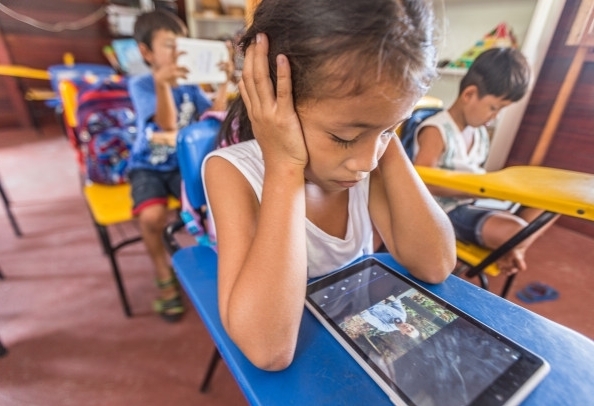



UNESCO issues urgent call for appropriate use of technology in education

Baku, July 31, AZERTAC
A new global UNESCO report on technology in education highlights the lack of appropriate governance and regulation, according to the official website of the Organization.
Countries are urged to set their own terms for the way technology is designed and used in education so that it never replaces in-person, teacher-led instruction, and supports the shared objective of quality education for all.
“The digital revolution holds immeasurable potential but, just as warnings have been voiced for how it should be regulated in society, similar attention must be paid to the way it is used in education. Its use must be for enhanced learning experiences and for the well-being of students and teachers, not to their detriment. Keep the needs of the learner first and support teachers. Online connections are no substitute for human interaction,” said UNESCO Director-General Audrey Azoulay.
Entitled “Technology in education: A tool on whose terms?” , the 2023 Global Education Monitoring Report is being launched today at an event in Montevideo, Uruguay, hosted by UNESCO, the Ministry of Education and Culture of Uruguay and Ceibal Foundation with 15 ministers of education from around the world. It proposes four questions that policy makers and educational stakeholders should reflect upon as technology is being deployed in education.
Using technology can improve some types of learning in some contexts. The report cites evidence showing that learning benefits disappear if technology is used in excess or in the absence of a qualified teacher. For example, distributing computers to students does not improve learning if teachers are not involved in the pedagogical experience. Smartphones in schools have also proven to be a distraction to learning, yet fewer than a quarter of countries ban their use in schools.
“We need to learn about our past mistakes when using technology in education so that we do not repeat them in the future. We need to teach children to live both with and without technology; to take what they need from the abundance of information, but to ignore what is not necessary; to let technology support, but never supplant human interactions in teaching and learning,” said Director of the Global Education Monitoring (GEM) Manos Antoninis.
Learning inequities between students widen when instruction is exclusively remote and online content is not always context appropriate. A study of open educational resource collections found that nearly 90% of higher education online repositories were created either in Europe or in North America; 92% of the material in the Open Educational Resources Commons global library is in English.
Azerbaijan, Association of International Educators discuss opportunities for cooperation
Türkiye's Bayraktar TB3 UAV breaks altitude record
Baku Higher Oil School, Tashkent Institute of Chemical Technology explore cooperation opportunities